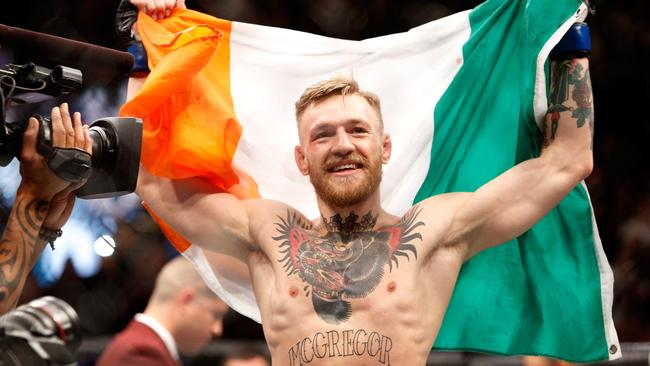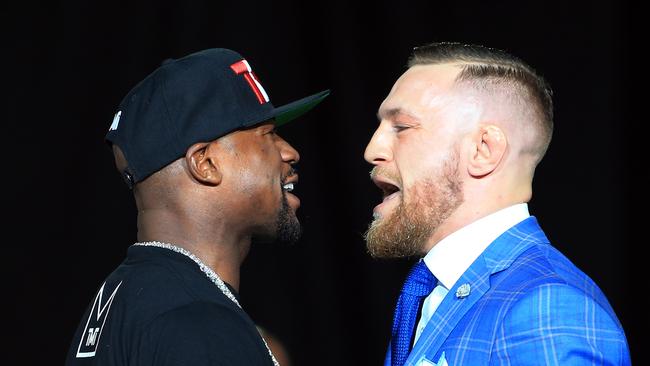
It’s 40 years since the Stranglers sang No More Heroes. “Whatever happened to / All the heroes? / All the Shakespearos?”, they drawled, as young punks full of cheap booze moshed in agreement.
Today, if anything, the hero drought is even worse than it was in the fin-de-siecle punk years, in popular culture, at least.
Sure, we have stars and idols and celebrities (so many celebrities). But heroes? Individuals with noble qualities, who exhibit courage, who you don’t just fancy or have a style-crush on but actively admire for their spark or daring? They’re in scarily short supply in the world of entertainment.
Even superheroes aren’t very heroic any more. From Zack Snyder’s reimagining of Superman as a mumbling self-doubter in Man of Steel to the rise of the irritatingly ironic Deadpool — a superhero who openly mocks the whole idea of superheroes — our youths can’t even get a hero fix when they visit the cinema these days.
In an era when it’s hip to be “knowing”, to take nothing very seriously, to cock an eyebrow at any suggestion that mankind is a heroic force — “Aren’t we, like, polluters killing the ozone layer?” your average teen is likely to retort to that — it seems the hero may be dead. Or hibernating.
Thank god, then, for Conor McGregor. For this foul-mouthed, always immaculately suited-and-booted UFC champ. For this man who takes himself very seriously indeed. For this irony-free zone of purpose and working-class wisdom.
For McGregor has, I believe, injected a much-needed shot of heroism back into popular culture. He’s the role model Western youth has been waiting for.
I know that many people, especially parents, will baulk at the idea that McGregor’s a man to emulate.
This is a guy, 28 years old, who makes a living — and what a living! — from punching, kicking and elbowing people. He hasn’t risen up the ranks of the Ultimate Fighting Championship, the heart of mixed martial arts, by being a nice, polite person.
This is a man who hails from Crumlin, a rough quarter of Dublin, and whose every second word in a Dublin accent that’s as broad as the River Liffey seems to be the F-word. This is a man who splashes his cash on fast cars, fat steaks and Rolexes.
And such profligate antics are of course tantamount to a moral crime in this era when we’re all meant to be belt-tightening eco-bores forever obsessing over the size of our footprint on the planet.
And this is a man who’s trash-talking his way around the US as he promotes his massive fight with Floyd Mayweather, which is set to light up Las Vegas, and television screens across Earth, next month.

But it is these qualities, the way McGregor grates against every tragic piety of our downbeat, self-effacing age, that make him admirable — and possibly noble.
Yes, he has a wicked wit. In the run-up to his 2014 clash with Dustin Poirier, who’s from Louisiana, McGregor said: “He’s a quiet, little hillbilly from the back arse of nowhere. His cousin is probably named Cletus.” Such snark is very Crumlin.
Before one of his fights, he told an admiring reporter: “There’s two things I really like to do and that’s whoop ass and look good. I’m doing one of them right now and on Saturday night I’m doing the other.” (He really does know how to look good. His Instagram account is a vast gallery of him posing in sharp suits and shoes that cost as much as my mortgage.)
But behind the sass, there’s a committed, artful fighter; a poetic bruiser; a smaller, ginger, more expletive-reliant 21st-century version of Muhammad Ali.
He’s no cold brute. When asked by a hack why he hated his opponents, he said he didn’t. “How could I hate someone who has the same dreams as me?”
His verbal ribbings aren’t hatred — they’re entertainment. As for those “dreams” — he means being the best. He means committing himself mind, body, fist, knee and elbow to the pursuit of greatness, to leaving an imprint in history. Something we should be encouraging the young to do.
McGregor isn’t really at war with his UFC opponents. He’s at war with himself and with that self-doubt that rankles in every mere mortal. He once said, “There is no opponent … you’re against yourself.” That should be on posters in schools. Don’t blame other people or some past event for your struggles or failings — usually the thing you need to beat is you.
Far from letting defeat get him down — or worse, turning it into a misery memoir, as is the fashion these days — McGregor says: “Defeat is the secret ingredient to success.”
Scrape away the bling and blather, and what we have here is a man of self-possession, a man who bigs up his grit rather than his foibles, a man happy to be in continual struggle against both his own mental and physical limitations and the low expectations the world tends to have of the less well-off from places such as Crumlin.
And that’s something to celebrate. That’s something to emulate. When every cultural trend is imploring us to be meek and satisfied with our lot and not afraid to advertise our “wounds” to a world that just can’t get enough of sob stories, the man who stands tall and declares war on himself is heroic.



